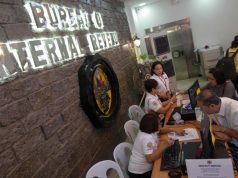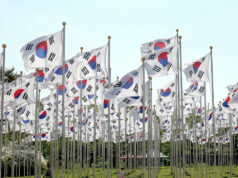Bringing Philippine coffee to the world
HENRY & SONS, a local coffee trader and manufacturer, is showcasing Itogon arabica coffee at the upcoming World Barista Championship 2019 in Boston, Massachusetts — which runs from April 11 to 14 — the first time a Philippine coffee will be used in the annual competition.
“Its flavors are very nice. It’s cherries and anise. It’s very sweet… Coffee [flavor] is based on environment. The higher the elevation, the more concentrated the sugar,” Michael Harris L. Conlin, Henry & Sons President, said in a press briefing held in his coffee shop The Giving Café in Mandaluyong last week. Mr. Conlin and his team will represent the Philippines in the competition.
“If I brew Itogon coffee for a foreigner, he would not even think it’s from the Philippines. We are at that level. I believe it’s world-class but it has to be brewed world-class,” Mr. Conlin said.
ITOGON COFFEE
According to Mr. Conlin, he was not able to use Philippine coffee during the Philippine National Barista Championship where he emerged as the winner due to the long time needed to process the coffee cherries, but he made sure he would be able to use Itogon coffee in the world championship.
“You have to take your time drying it. Since it was rainy last December, it took us about four weeks to dry the stuff. When it was fully dried, we tasted it, and it tasted like raisins because the sugar was concentrated and it was very sweet… After you dry it, you cannot roast it right away. When you roast it immediately after drying, the moisture is uneven. There are some parts that are wetter than others and you roast it, it starts becoming patchy. Some parts are light, some parts are dark… After drying the coffee, you have to rest it for 90 days,” Mr. Conlin said.
SWEET MILK
Asked why he chose Itogon coffee for the competition, Mr. Conlin said, “The thing is, I know it very well.”
Mr. Conlin said that he hired a coach from Japan for the upcoming competition who disagreed with the use of the Itogon coffee, but when he tried it, was amazed by its quality.
“When I hired a coach from Japan, when he heard I’m going to use local coffee, he sort of freaked out because he did not know the potential. So, I kept pushing him to try it, he did not even want to pay attention to me,” Mr. Conlin said, noting that later on, the coach was surprised by the Itogon coffee’s flavor.
Mr. Conlin said that he was also going to use Henry & Sons’ engineered milk — which he discovered by accident — in the competition. The milk, when blended with coffee, gives it a lactose sweetness and not sugar sweetness.
According to Mr. Conlin, he unintentionally froze the milk in his refrigerator, and when it started melting, he noticed that the first part that came out was the lactose part, leaving the water behind. He steamed it, and he found out that the milk was then sweeter.
“In [competition] the baristas have to think outside the box. For the milk beverage, milk is milk and when you mix it with coffee, it is coffee milk. There’s nothing special to draw out of it. I wanted to distill the milk, I wanted to purify the milk,” Mr. Conlin said.
EMPOWERING FARMERS
He said that the coffee cherries were bought at P100 per kilo by Henry & Sons, instead of the usual P25 per kilo farmgate price. He said that his company also taught the farmers how to process the coffee so that they will able to sell it at a higher price, without the need for traders.
“If they sell their coffee as cherries, usually they sell it at P25. We buy it at a hundred. What we’re really proud of is we taught them how to process these coffees. Because if they process these coffees and sell them as green, ready-to-roast coffee, they’re able to sell it at P320. If they roast the coffee and sell the coffee as roasted, they’re able to sell it at P800 per kilo,” Mr. Conlin said.
“It is really empowering them with knowledge,” Mr. Conlin added. — Reicelene Joy N. Ignacio



